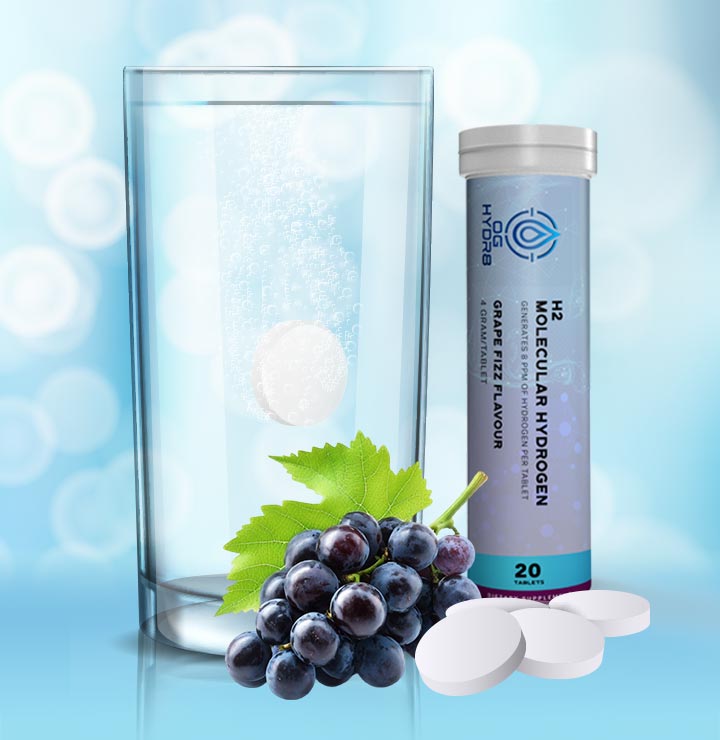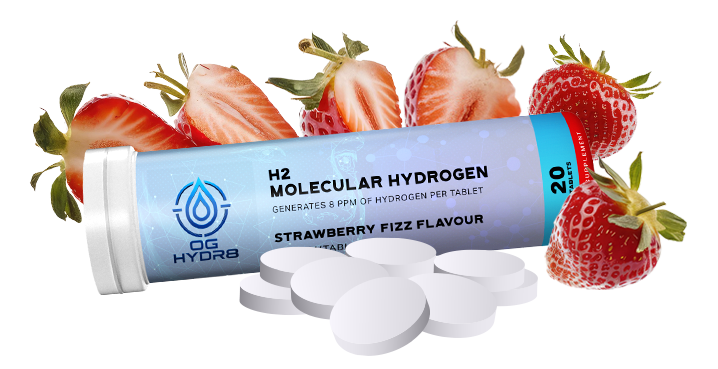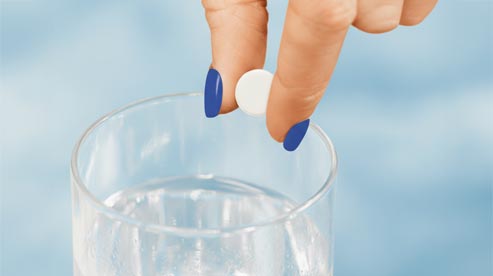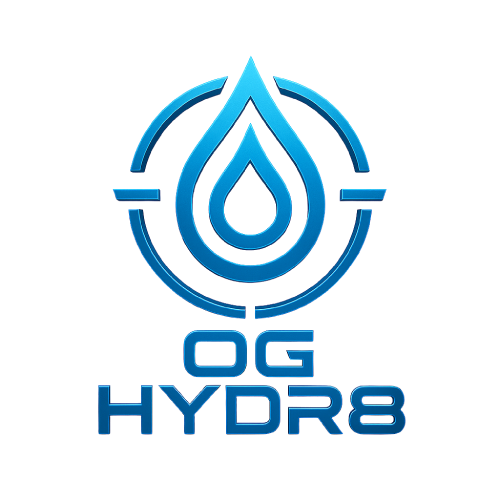
What is Hydrogen Water?
Hydrogen water, also known as molecular hydrogen water or hydrogen-infused water, is gaining worldwide attention as a powerful wellness innovation. While the concept may sound new, research into the potential health benefits of hydrogen water has been steadily growing, and now the mainstream is beginning to catch on.
But many people still ask:
What exactly is hydrogen water?
What are the proven benefits of hydrogen water?
Part of the confusion comes from the terminology. Depending on the source, you may see hydrogen water referred to as molecular hydrogen water, hydrogen-enriched water, or hydrogen-infused water. Some groups even mention “hydrogen therapy” or “hydrogen-rich therapy,” which not only includes drinking hydrogen water but also other delivery methods such as hydrogen gas inhalation.
Why Hydrogen Water Matters
Health-conscious individuals want to see credible scientific studies, while those already familiar with the research are curious about how different hydrogen water technologies compare. That’s why we created this “Discover Hydrogen Water” resource—to provide clarity and showcase the science behind hydrogen water in one easy-to-navigate place.
Backed by Clinical Research
Our goal is to make hydrogen water research accessible. This guide explains what hydrogen water is, explores the health benefits supported by clinical studies, and highlights the advancements being made with our hydrogen water tablet technology. No other company has compiled such an extensive library of human clinical research on hydrogen water.
We invite you to explore our continually updated list of clinical studies, which ranks among the most comprehensive in the world. Whether you’re new to hydrogen water or simply looking for trustworthy information, this guide will help you understand how hydrogen water works and how it may improve your health and wellbeing.
Discover how hydrogen water could make a difference for you and your loved ones.
Hydrogen Water Benefits Made Simple
Curious about how molecular hydrogen supports your body and enhances overall health, but don’t have time to sift through pages of studies? This guide gives you a clear and straightforward overview of the benefits of hydrogen water.
Our OG Hydr8 hydrogen water tablets are designed to:
Protect your body at the cellular level
Support better overall health and wellness
Promote faster recovery after stress or exercise
Enhance athletic performance naturally
How Hydrogen Water Works in the Body
Taking a daily hydrogen water supplement can help your body combat oxidative stress, one of the leading factors in aging and chronic health issues. It also plays a key role in maintaining a balanced inflammatory response—crucial for long-term wellness and recovery.
Unlike traditional NSAIDs (non-steroidal anti-inflammatory drugs), molecular hydrogen works in a unique way. Clinical research shows it may deliver equal—or even superior—benefits for inflammation management without the harmful side effects commonly linked to pharmaceutical drugs.
Discover how OG Hydr8 hydrogen water can help you optimize health, speed up recovery, and support peak performance—naturally and effectively.
Molecular Hydrogen Research & Clinical Studies
Want to dive deeper into the science behind hydrogen water? We’ve made it easy. Our research library compiles a comprehensive list of human clinical trials on molecular hydrogen, with most studies using hydrogen water as the primary delivery method.
To simplify your search, we’ve organized these studies into clear categories so you can quickly find the areas of research that interest you most.
This resource allows you to explore the incredible findings scientists have uncovered about how hydrogen water interacts with the human body. Instead of spending hours searching through PubMed, you’ll find everything you need right here in one convenient, central hub.
Discover how molecular hydrogen research continues to reveal powerful benefits for health, recovery, and overall wellness.
Hydrogen Water Studies with OG Hydr8
OG Hydr8 is at the forefront of therapeutic hydrogen water technology. Backed by more human data than any other molecular hydrogen or hydrogen water company, OG Hydr8 continues to lead the way in innovation—with many exciting new studies already in progress.
What the Research Shows
Clinical studies on OG Hydr8 hydrogen water tablets have demonstrated potential benefits for:
Metabolic health and cellular function
Athletic performance and faster recovery
Injury support and acute event recovery
Ongoing Clinical Trials
In addition to published results, several registered clinical trials are underway to further evaluate the impact of OG Hydr8 hydrogen water on human health. These studies aim to expand our understanding of how molecular hydrogen supports wellness, performance, and long-term recovery.
Explore the research and see how OG Hydr8 hydrogen water is shaping the future of health and performance science.
Comparing Hydrogen Water Technologies
With so many hydrogen water products and delivery methods on the market—each making different claims—it can be overwhelming to know which option is truly effective. To make things easier, we’ve broken down the pros and cons of the most common hydrogen water technologies so you can make an informed decision.
How OG Hydr8 Tablets Compare
Our open-cup hydrogen water tablet delivery system is designed to maximize hydrogen concentration and absorption. But how does it compare to other popular options?
Swallowed tablets or powders
“Sealed container” infusions
Hydrogen water powders and sticks
Hydrogen-producing machines
Hydrogen inhalation machines
Hydrogen Ionizers
We also take a closer look at hydrogen ionizers, including:
Countertop ionizers
Constant flow systems
Handheld/portable ionizers
“Natural stone” ionizers
Hydrogen Machines & Ready-to-Drink Products
Beyond ionizers, we compare hydrogen machines—both batch and constant flow systems—as well as the growing category of ready-to-drink hydrogen water in pouches and cans. Finally, we explore how all of these delivery methods measure up against molecular hydrogen gas inhalation.
This comprehensive comparison highlights the advantages and limitations of each approach, helping you understand why OG Hydr8 hydrogen tablets are leading the way in effectiveness, convenience, and reliability.
OG Hydr8 Hydrogen Water Tablet Technology
At OG Hydr8, we believe in transparency backed by science—not smoke and mirrors. Our open-cup hydrogen water tablets are engineered to deliver reliable, therapeutic levels of molecular hydrogen, supported by rigorous testing and certification.
Through the resources below, you’ll discover exactly how our technology works and why it sets the standard for hydrogen water delivery:
Gas chromatography results verifying the performance of our hydrogen water tablets
Independent lab reports from the International Hydrogen Standards Association (IHSA) testing facility in North America
IHSA certification for verified hydrogen concentration and quality
An explanation of how OG Hydr8 hydrogen bubbles remain stable in water
How our open-cup delivery system consistently achieves therapeutic levels of molecular hydrogen
Explore the science behind OG Hydr8 hydrogen tablets and see why our technology is trusted by researchers, athletes, and health-conscious individuals worldwide.

The History of Hydrogen Water
For many people, the idea of hydrogen water feels like a new discovery. But the truth is, the concept goes much deeper than simply drinking water infused with hydrogen gas. To truly understand the history of hydrogen water, we need to explore the roots of molecular hydrogen therapy itself—a story that stretches back not only through human history, but to the very beginning of our planet, the origins of life, and even the universe’s earliest formation.
Hydrogen is often called the “original element,” the building block from which stars and galaxies were formed. As Harold Shapley, Head of the Harvard College Observatory (1921–1952), famously said:
“If God did create the world by a word, the word would have been hydrogen.”
Today, through advanced technology like OG Hydr8 hydrogen water tablets, we are harnessing this fundamental element in a way that may support health, recovery, and overall wellbeing. What feels like a modern innovation is actually rooted in the most ancient history of all—the origins of life itself.
The Brief History of Water Ionizers
Water ionizers were first developed in the early 1900s, with Japanese research on electrolyzed water beginning in 1931. By the 1950s, these devices gained popularity as some users claimed they provided “healing effects.” In 1962, two companies even applied to have their ionizer machines classified as medical devices.
However, according to the Molecular Hydrogen Institute, this classification had less to do with actual therapeutic hydrogen benefits and more with the fact that calcium lactate needed to be added to the water to enable electrolysis. At the time, the mineral content in the source water was insufficient to produce alkaline water naturally.
For more on why these machines required additional minerals before electrolysis, see our article on Comparing Hydrogen Water and Gas Technologies. And for a deeper look at the pseudoscientific claims that the water ionizer industry often promoted, we recommend our detailed article debunking those myths.
Before We Knew Hydrogen Gas Was Therapeutic
Long before the water ionizer industry accidentally stumbled upon hydrogen water (without recognizing it until around 2010), hydrogen therapy was already being utilized—though unintentionally. This happened through magnesium implants, which reacted within tissue to release hydrogen gas and magnesium ions. Interestingly, this process is very similar to how OG Hydr8 hydrogen water tablets work when dissolved in water.
The first medical case report involving metallic magnesium implants dates back to 1878. Today, the use of magnesium alloys in implants remains an active field of research. One review even states that “nearly all patients” benefit from the hydrogen produced by magnesium-based medical implants.
Before OG Hydr8 Existed
As detailed in our founder’s published hypothesis paper “Evolution, Adaptive Stressors, and Molecular Hydrogen,” the story of hydrogen water goes back to the very origins of life itself. The “hydrogen hypothesis” suggests that our mitochondria evolved from hydrogen-dependent organisms. Molecular hydrogen also played a crucial role in the development of Earth’s atmosphere, shaping the conditions necessary for life.
Even ancient subterranean waters tested in modern times have been found to contain detectable hydrogen gas. In fact, the oldest waters ever discovered—over a billion years old—could accurately be described as natural forms of hydrogen water.
Learn more through credible scientific resources:

Hydrogen and Skepticism
A Message from Our Founder
There’s a clear divide when it comes to hydrogen water and skepticism. Many people—whether health experts or everyday individuals—automatically default to unusually high levels of doubt. Because of this, promoters of hydrogen water often believe the science is being “unfairly attacked.” Yet with 1,500+ publications showing benefits in 170 models across nearly every organ system, including 100+ studies on humans and Phase III clinical trials underway, how can anyone dismiss it as pseudoscience rather than acknowledge it as a promising area of health research with proven potential?
With millions of testimonials worldwide and active research from public teams, why do skeptics still claim hydrogen water is no better than placebo? How can people continue saying “all water has hydrogen,” when this misconception has been corrected repeatedly and accurate explanations are widely available?
Skepticism, however, is valid. The onus of proof is on us, and the evidence is substantial. As proponents, we must understand hydrogen therapy—whether hydrogen water, inhalation, or saline—and communicate it responsibly. Too often, products are marketed with ineffective dosages or exaggerated claims, which harms credibility. The real science of hydrogen therapy deserves accuracy, transparency, and recognition of its true potential benefits.
Testimonials and Evidence in Hydrogen Water Research
Testimonials often serve as the first spark for interest in new therapies, but in science, they remain the weakest form of evidence. For hydrogen water and hydrogen therapy, most early studies were in vitro or animal-based, offering useful insights but limited human application. Human trials began as small pilot studies, often underpowered and with little replication. However, certain areas—such as exercise performance and metabolic health—show consistent promise. Importantly, larger and more controlled clinical trials are now being conducted, and results are trending stronger instead of disappearing. This growth indicates that molecular hydrogen, particularly through hydrogen water, provides measurable benefits worth deeper investigation.
Ongoing questions focus on dosage, delivery methods—whether hydrogen water, inhalation, or saline—and timing of administration. Determining when hydrogen therapy is most effective, and for which populations, is a critical step for the future of clinical use.
Literature vs. Systematic Reviews
The majority of hydrogen water research to date has been summarized through literature reviews, which provide valuable overviews but are often subjective and narrative-based. These reviews help highlight key findings but lack the rigorous standards needed to assess study quality and eliminate bias. Systematic reviews, on the other hand, analyze individual studies with strict methodology, weighing credibility, dosage, design, and replication. In medical science, systematic reviews sit much higher on the evidence hierarchy and are essential for shaping clinical guidelines.
Hydrogen therapy research, including hydrogen water studies, is steadily moving up this pyramid of evidence. Each year, larger, better-controlled trials are emerging, laying the foundation for more definitive systematic reviews in the near future. Until then, much of the field remains promising but preliminary. Continued research will be vital to determine optimal dosages, treatment protocols, and long-term effects on human health.
Why Skepticism Persists
Even with more than 1,500 published studies, hydrogen water research continues to face strong skepticism, particularly in mainstream media. Many reports dismiss it as “pseudoscience” or claim it has “no evidence,” despite growing data supporting real biological benefits. This skepticism stems in part from decades of misleading “miracle water” products, exaggerated marketing claims, and confusion around alkaline or ionized water. These factors have made legitimate hydrogen therapy research harder to separate from pseudoscience.
Notably, even respected scientists were initially skeptical. Our cofounder, Dr. Holland, once dismissed hydrogen tablets as “placebo at best.” Yet after carefully reviewing the evidence and seeing clinical potential, he became an advocate for molecular hydrogen therapy. His journey reflects the broader challenge: hydrogen water is not a cure-all, but research shows it may deliver meaningful health benefits. Progress now depends on rigorous science and transparent communication.
Health Experts and Hydrogen Water Skepticism
Health Experts and Hydrogen Water Skepticism
When people first hear about hydrogen water, skepticism is usually the immediate reaction—especially from those trained in biochemistry, physiology, chemistry, or gas solubility engineering. On the surface, the idea seems improbable: hydrogen gas is considered inert, poorly soluble in water (carbon dioxide is over 1000x more soluble), and unlikely to have biological effects. Yet despite these challenges, literature reviews have shown that hydrogen water may be 100x more effective per dose than inhalation therapies. Published evolutionary hypotheses even suggest deeper explanations for these surprising outcomes.
One liter of saturated hydrogen water contains about 1.6mg of molecular hydrogen. While this may sound insignificant, the number of molecules involved is comparable to 139mg of Vitamin C, and clinical studies have demonstrated meaningful biological activity at these levels. In fact, one OG Hydr8 hydrogen tablet provides around four times this amount, and several human trials have administered multiple tablets per day with promising results.
Overcoming Scientific Skepticism
Skepticism also extends to the way OG Hydr8 hydrogen tablets deliver several times the gas allowed under standard ambient temperature and pressure (SATP). Initially, even our team at OG Hydr8 doubted the findings. It wasn’t a “eureka” moment but, as Isaac Asimov once said, a “that’s funny” moment that drove further investigation. Rigorous gas chromatography testing, attempts by competitors to disprove results, and multiple third-party replications have all confirmed the validity of our findings. In science, claims cannot be “proven true,” only “not proven false.” So far, OG Hydr8 hydrogen tablets have consistently passed this test.
Still, many questions remain. The exact mechanism of action for hydrogen gas is not fully understood. We know it affects gene expression and cellular pathways, but whether this is a form of hormesis or another physiological stress response is still being studied. My evolutionary hypothesis paper proposes one explanation, and I’ve outlined potential trial designs to help uncover molecular hydrogen’s true role in human health.
Why Research Misinterpretations Fuel Doubt
A key issue in hydrogen water research is misinterpretation. Medical doctors may draw conclusions that seem implausible to biochemists, and early studies sometimes extrapolate findings beyond what the data shows. But dismissing the data itself due to flawed interpretations would be a mistake. What we need instead is better analysis, corrected conclusions, and multidisciplinary collaboration. As Michael Polanyi once noted, destructive analysis can only lead to truth when supplemented by new discoveries.
Unfortunately, lazy journalism has compounded the problem. Reporters often seek opinions from health professionals unfamiliar with hydrogen therapy, who fall back on heuristics about “magic water” and dismiss the field outright. This bias is then amplified as one negative article builds on another. The issue isn’t skepticism—it’s misinformation. Skepticism is essential for science; misrepresentation is not.
Responsibility of Proponents
The burden lies with proponents of molecular hydrogen therapy. We must reject exaggerated claims, avoid pseudoscience, and communicate the real evidence. For example, my colleague Prof. Ostojic highlighted in a recent paper that many hydrogen products make unsubstantiated claims or fail to contain therapeutic levels of H₂. He also pointed out that so-called “miracle spring waters,” like those at Lourdes or Nordenau, have never been shown in literature to contain measurable hydrogen levels. Without published proof, such claims weaken the credibility of legitimate research.
This is why proponents must be more critical than skeptics themselves. Every new study should be scrutinized, not used as confirmation bias. True expertise comes from recognizing limitations, not overstating certainty. As Christopher Hitchens famously put it: “Exceptional claims demand exceptional evidence.”
Moving Science Forward
Despite skepticism, the field of hydrogen water continues to advance. The oldest water on Earth, discovered in Ontario and estimated to be 1 billion years old, was found to contain dissolved hydrogen gas. This discovery supports the idea that hydrogen has played a role in biology since the earliest days of life. But to gain broader acceptance, we must continue producing rigorous, peer-reviewed science.
Science adjusts its views based on evidence. If we want hydrogen water and OG Hydr8 hydrogen tablets to be recognized as legitimate science, we must do the same—continuously refining our claims, rejecting weak evidence, and embracing skepticism as a driver of progress. Hydrogen therapy has great promise, but it is still early. For the field to thrive, we must communicate accurately, research responsibly, and let the data speak louder than hype.
For more, see:
